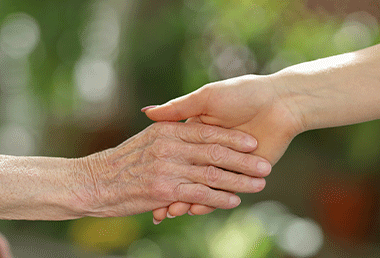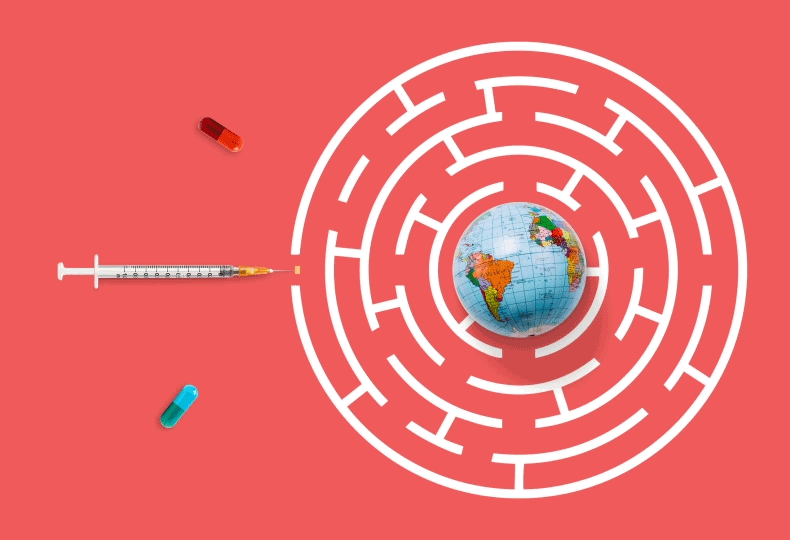
Issue 37 / February 2021
SCIENCE OF LIFE
The Nurse Will See You Now, Online

Nurse-clinicians, enabled by technology, provide care for recovering heart attack patients through telehealth—a system that can be as good as cardiologists’ face-to-face consultations.
ecovering heart attack patients can be well cared for by highly trained experienced nurses, whose quality of care equals or even exceeds those provided by cardiologists.
These are the findings of a study involving 301 patients in three healthcare institutions in Singapore. Led by Associate Professor Mark Chan, Deputy Director of the Cardiovascular Disease Translational Research Programme, NUS Medicine and Senior Consultant at the National University Heart Centre, Singapore, the study showed that the nurse practitioners, equipped and supported by an array of digital health monitoring tools, were able to remotely monitor and assess the patients’ health daily as well as hold weekly consultations with them. Where necessary, the nurses also adjusted the patients’ medication doses, providing a level of care that Assoc Prof Chan and the team found was not usually available from busy cardiologists running heavy clinics.
The Need: Continuous monitoring and frequent personalised care instead of low intensity episodic care
Heart attacks are common in Singapore where 10,000 new heart attacks occur each year. In a heart attack, or acute myocardial infarction, arteries supplying heart muscle are abruptly blocked, causing heart muscle to die very quickly. Death of heart muscle can be rapidly fatal and even among heart attack survivors, dead heart muscle can cause a lifetime of suffering by leading to heart failure.
The study involved
301
patients in
three hospitals
in Singapore.
The pre-hospital and in-hospital management of heart attacks in Singapore is considered among the best in the world, with our public hospitals offering 24/7 emergency angioplasty treatment to open up blocked arteries in double-quick time. However, challenges remain in the care of heart attack patients after they leave the hospital. Ideally, heart attack patients should be reviewed early after discharge as the early post-discharge period is when they are most vulnerable to complications from the heart attack. It is also the most opportune window to adjust their medications for rapid healing of heart muscle.
The Problem: Delay in post-discharge follow-up
Yet, the reality is that cardiologists in most healthcare systems around the world are unable to see heart attack patients within a month of discharge. The primary reason for this delay in post-discharge follow-up is due to the logistic challenge of accommodating frequent in-person visits at specialist outpatient clinics in the hospital. The traditional mode of cardiologists seeing their patients infrequently in face-to-face visits, sometimes lasting as briefly as several minutes, is about to change and pave way for telehealth services.
“Technology has also removed many of the barriers posed by traditional models of care; Artificial Intelligence now gives an ‘Iron Man’ suit to the allied health practitioner and digital tools now enable interactions across both space and time beyond traditional in-person episodic care…”
Assoc Prof Mark Chan, Department of Medicine
More attentive care from nurse clinicians enabled by technology
Enter the allied health clinician, often a nurse practitioner or pharmacist with specialised training, who is increasingly taking over many patient-care roles. Armed with an array of digital health tools that enable these allied health clinicians to monitor and communicate with patients remotely, heart attack patients can now have timely yet more leisurely outpatient follow-up with adjustment of their medications during the critical early period of heart muscle recovery.
These were the findings of the clinical trial of remote follow-up and medication adjustment by allied health clinicians for 301 heart attack patients from three healthcare institutions—National University Heart Centre, Singapore, Tan Tock Seng Hospital and the National Heart Centre Singapore in the IMproving reModeling in Acute myoCardial infarction Using Live and Asynchronous TElemedicine (IMMACULATE) trial.
Through the use of remote monitoring devices, the allied health clinicians—experienced, senior nurses with master and doctorate degrees in advanced nursing care—were able to monitor the patients’ blood pressure and heart rate daily and consult weekly with the patients, a level of care that has never been possible in the traditional model of face-to-face care with busy cardiologists. The trial was a randomised controlled trial, which means patients were equally assigned to the allied health clinician-led remote management versus traditional face-to-face care by cardiologists; randomised trials remain the gold standard for testing the efficacy of new treatment strategies as it balances out all other differences between the patient groups being compared. The trial, which has just been published in the prestigious medical journal, JAMA Cardiology, showed that allied health clinician-led remote management using digital health tools was as safe as in-person care by cardiologists. Moreover, patients assigned to remote allied healthcare showed a trend towards more optimal doses of key medications than cardiologist-led care.
Assoc Prof Chan, principal investigator of the IMMACULATE trial, explained that the trial results should reassure patients that nurses and pharmacists, can deliver as good if not better care than cardiologists. Assoc Prof Chan, a cardiologist himself who looks after heart attack patients, said, “Time and again, research has shown that allied health colleagues with the right training do as well and sometimes better than cardiologists, at least when taking care of conditions that are of lower complexity and pathway-driven. The reasons for this are diverse but include, perhaps, greater willingness to follow evidence-based clinical protocols and perhaps greater empathy. Certainly, research has repeatedly shown that fewer variations in practice often lead to better patient outcomes for common conditions.”
He continued, “Technology has also removed many of the barriers posed by traditional models of care; Artificial Intelligence now gives an ‘Iron Man’ suit to the allied health practitioner and digital tools now enable interactions across both space and time beyond traditional in-person episodic care. Limitations of course exist with this model of allied health-led technology enabled care: first, large initial investments in training are needed to upskill the allied health providers, second, the reliance on technology will always bring along data security risks, a trade-off for convenience, and third, clinical pathways probably work for only approximately 50% of conditions in cardiovascular practice. There are still many patients with complex cardiovascular diseases and multiple co-morbidities that will require highly-specialised in-person ‘bespoke’ care by an experienced cardiologist; assigning the less complex patients to upskilled allied health practitioners then frees up specialist cardiologist to focus on the highly complex patients.”
Assoc Prof Chan and the same team of investigators spanning all three healthcare clusters are now embarking on a far more ambitious trial of 6,000 heart attack patients in partnership with the Ministry of Health (MOH), MOH Office for Healthcare Transformation (MOHT), Health Promotion Board (HPB), Institute for Digital Medicine (WisDM) and Integrated Health Information System (IHiS), in which more advanced digital tools are paired with wireless devices and wearables to enhance patients well-being. Called “Acute Myocardial Infarction: Allied Health-Oriented, Patient-Centred Technology-Enabled (AMI-HOPE)” care, the much larger study will be completed in 2023 and the results known in 2024.




